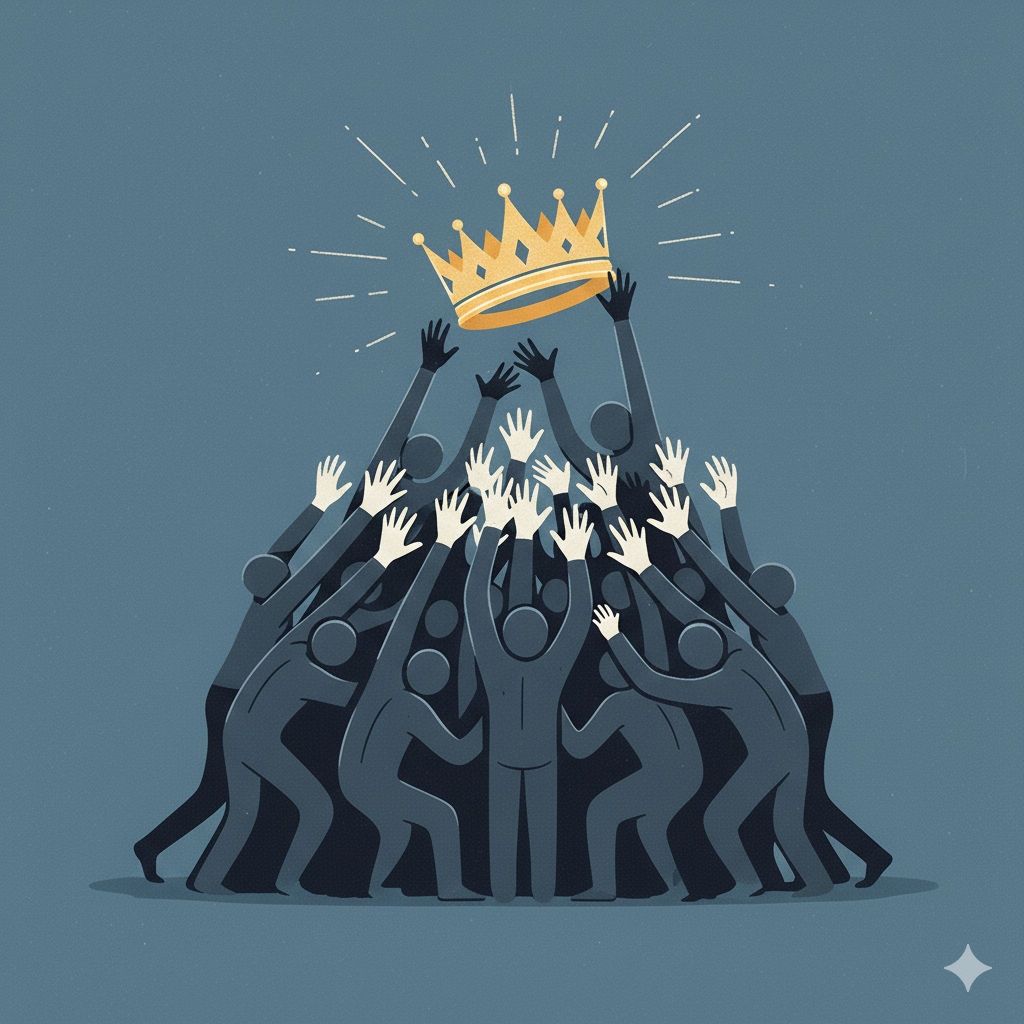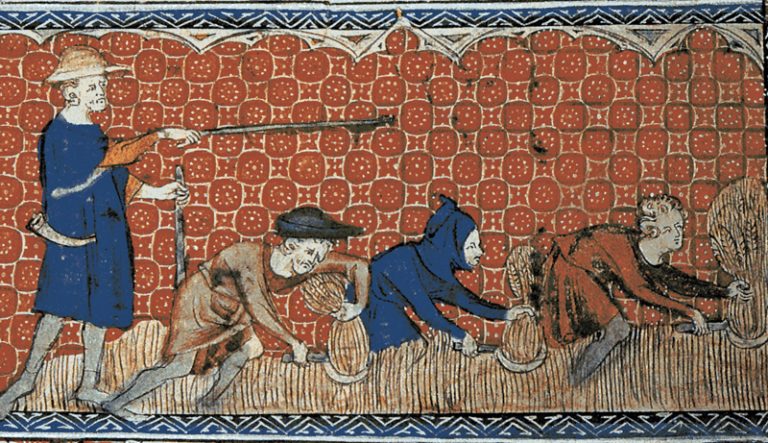Status and Inheritance: Hanno Sauer’s “Class” analysis.

In the book “Class. The origin of top and bottom.” the author Hanno Sauer makes the claim that that economic redistribution—no matter the form: whether a basic inheritance, UBI, progressive taxes, etc. —actually intensifies the problem of status hierarchies, because greater economic equality leads to non-financial status inequalities becoming even more important.
This thesis, in itself and how it is justified in the book, is convincing. Sauer lays out well how the thrive for acquiring a higher status than others appears to be a universal human trait that we are deeply wired for. Income, wealth and other economic status markers are thus only a means to end, and no increase in absolute economic prosperity will stop the race of status competition, which is inherently a relative phenomenon.
“Status conflicts are a zero-sum game because status is a rank order, meaning one person can only gain more status if another person loses status. This persistence is drastically underestimated.”[1]
In fact, as Sauer acknowledges, where status competition leads to socially inefficient outcomes such as through ecological externalities of economic growth or waste of resources through advertisement, the zero-sum game can actually become worse: a negative-sum game. But Sauer also points towards the partially positive of effects of status markers where they carry an actual degree of information, such as with educational credentials. A university degree is both a status marker, but does carry important information about the likelihood of the degree holder being somewhat knowledgeable about the subject at hand.
Where social policy equalises those markers, people will find alternative means to differentiate themselves and acquire status, such as through moral superiority, specific life-styles or tastes. When you try to equalise those non-financial markers (e.g. by having everybody wear the same cloths), other status markers will gain in relevance. An interesting paradox: Even the attempt to ignore all such kinds of status markers and fight for full equalisation will at some point become a status marker, when individuals compete against each other in who is most strongly rejecting status. So far, so good.
From the perspective of our inquiry into equality of opportunity, the following questions are relevant: Are the non-financial/informal social status categories
a) … hereditary?
b) .. correlated with financial status indicators?
c) … inherently bad? Do they form a clear hierarchy or just a differentiation?
Inherited status
The only case in which we should be concerned about status differences from an equality of opportunity perspective status is when they are hereditary. No matter whether status differences are good or bad, if they are not structurally passed on as privileges or lack of such, there is no infringement on starting justice.
Surprisingly, Sauer dedicates relatively little attention to the question of whether his diagnosed class persistence is hereditary or recreates itself in every generation. Referring to one twin study on genetic transmission of status and the findings of Gregory Clark on very long-term status persistence, Sauer seems to take the side of nature in the nature vs. nurture debate. Clarke’s data show impressively how usual studies of social mobility underestimate how the heritability of socio-economic status by often focussing too narrowly on two-generation correlations of income, profession, etc. Clarke’s research approach using rare surname data allows to connect long-term family chains and study the correlation of socio-economic status on a longer-term perspective. The results show that there is a certain hidden social status transmission that can help explain why individuals from a wealthy family a couple of hundred years ago still rank above average in socio-economic status today, even though some generations in between may not have shown particularly high status on the outside as measured by income or profession. This hidden social status transmission can be either biological or social- nature or nurture. Clark tends to fall with nature, leaning on adoption studies. However, these studies – or at least Clark’s interpretation of them – seem to fall short of acknowledging the blurry boundaries between biological and social influence factors. Epigenetics, where social factors influence biological ones, play a key role here.[2]
To take stock: We may accept that social status is inherited to a large degree, but that does not mean we need to accept that it is inherited strictly biologically. The difference is profound. If we accept that social influence factors play a decisive role as well, this opens room for social policy to help create conditions in which the transmission of privileges through social status becomes less relevant. If everybody grows up in similarly healthy and caring environments, there will be less differences in biological traits such as inheritance that in turn serve as status markers.
Probably, Sauer would not be convinced here. He may reply: If parents cannot rely on passing on privilege economically (through inheritance reform) nor genetically/socially (through a more egalitarian social welfare, education and child care system), they would find other ways of passing on status, that the state will not manage to influence or equalise. This could be certain tastes, language, habitus, codes, etc. Is this plausible? Sauer doesn’t offer a theory of status inheritance but only of status competition across one generation. It doesn’t follow naturally that only because we follow Sauer that status competition is an inherent human trait, that humas also want to necessarily pass on status to their children in the same way. However, this is not a far-fetched assumption, so let’s accept it for the moment. But would this extension of status competition across generations be problematic from an equality of opportunity perspective? Yes, of course, as such status can be used and converted into practical advantages like access to certain networks, careers and political positions. However, it would be much less severe than the current system of directly passing on privileges via economic endowments and better upbringing. If we’d have a society where everybody is born and grows up equally wealthy and the differences in talent are really only due to chance and not structurally through prenatal and early childhood influences, we’d already be very far on our journey towards equality of opportunity.
Status correlation
But if status differences are hereditary, does that automatically mean this goes against equality of opportunity? Not necessarily. In theory, social status transmission could also counteract other forms of privilege transmission. Just like giving preferential treatment in the workspace towards people with disability is a means to use privileges in one dimension to make up for being less privileged in another dimension. Is it likely that without state interference in a natural flow of things social status transmission across generations could play such an equalising function? Rather not. More often than not, socio-cultural privileges are correlated with economic and biological privileges, which in turn is an obstacle towards equal opportunity.
In theory, the state could come in here and attempt to redistribute status in order to explicitly counter-weigh other privileges. However, as Sauer describes well in his book, state organised status distribution doesn’t work well. State-granted status can even have the opposite effect of being formally labelled as “needy”. As status is intrinsically fluid in nature and is defined by its exclusivity, it doesn’t work too well to artificially create it.
What’s wrong with status?
Should status differences be hereditary, and – unlike shown above – not correlate with economic differences, would they still be any problematic? At first, it seems, yes. If we’d do away with economic privileges through reforming our inheritance system, only to allow another form of privilege (social status) to be passed on through your children, we had only won have the battle on our way to a system of equality of opportunity. However, this only holds if we conceive social status in a certain, universal and all-encompassing way, in which there is a clear hierarchy of individuals in society based on their status. Sauer is a bit inconclusive on the question of whether his diagnosis – that we have to come to terms with the fact that a classless society is impossible – is inherently a bad thing. In large parts of his book, he paints a rather disappointing image or at least frames his diagnosis in a pessimistic language of the kind “I am sorry to tell you this unwelcome truth”. He presents different class models that share the characteristic of sorting individuals hierarchically by status.
On the other hand, in his own proposals for how to deal with this fact, Sauer proposes status pluralism as a system in which as many people as possible can gain some distinction in at least any kind of status hierarchy. Such a status pluralism serves as an alternative conception of status competition that is more friendly with regards to egalitarian considerations. Status distinction if understood in the more neutral form of differentiation, must not necessarily be bad. The French philosopher Simone Weil put it nicely:
“Equality is all the greater in proportion as different human conditions are regarded as being, not more nor less than one another, but simply as other. Let us look on the professions of miner and minister simply as two different vocations, like those of poet and mathematician”[3]
Ultimately, the core problem with status is not distinction itself, but the existence of a single, hereditary status hierarchy that controls overall social standing. While Hanno Sauer demonstrates that status competition is an innate human drive that will persist even with economic equality, his findings do not conflict with efforts to achieve equality of opportunity through inheritance reform, such as a universal basic inheritance. Such reforms remain vital because they dismantle a structural, highly correlated form of status transmission. Sauer’s proposal of status pluralism—where distinction is gained across multiple, non-correlated hierarchies—offers a solution by treating differences as “simply as other,” as Simone Weil suggested. It is, however, unfortunate that the book offers relatively few concrete proposals on how to actively foster this necessary pluralism or how to break the hereditary link between different non-financial status markers.
Further Reading/Sources
[1] Sauer (2025): “Klasse. Die Entstehung von oben und unten“. Piper, München. p. 279
[2] Torche and Corvalan (2018): “Estimating Intergenerational Mobility With Grouped Data: A Critique of Clark’s the Son Also Rises.” Sociological Methods & Research, 47(4), 787-811. https://doi.org/10.1177/0049124116661579
[3] Weil (2002) [1943]: “The Need for Roots: Prelude to a Declaration of Duties Towards Mankind.” Translated by Arthur Wills. Preface by T.S. Eliot. London: Routledge Classics. Taylor & Francis e-Library, 2005. p.17





